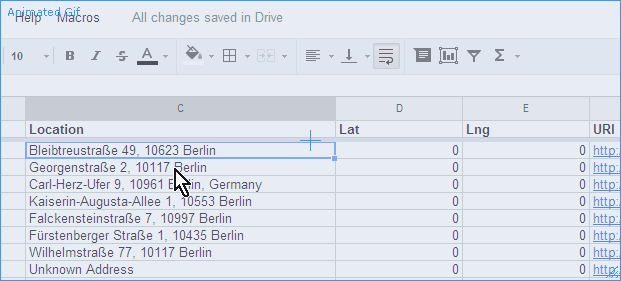I’ve been doing a bit of nerding around with a side project, which involves editing a bunch of addresses in Google Sheets and having to geocode them into raw lat/lng coordinate pairs.
I went ahead and coded up a quick App Script macro for Google Sheets that lets you select a 3-column wide swath of the spreadsheet and geocode a text address into coordinates.
Update 10 January 2016:
The opposite is now true too, you can take latitude, longitude pairs and reverse-geocode them to the nearest known address. Make sure you use the same column order as in the above image: it should always be Location, Latitude, Longitude.
I’ve moved the source to Github here:
https://github.com/nuket/google-sheets-geocoding-macro
It’s pretty easy to add to your Google Sheets, via the Tools -> Script Editor. Copy and paste the code into the editor, then save and reload your sheet, and a new “Geocode” menu should appear after the reload.
Update 15 March 2021:
I’ve added code to allow for reverse geocoding from latitude, longitude pairs to the individual address components (street number, street, neighborhood, city, county, state, country).
